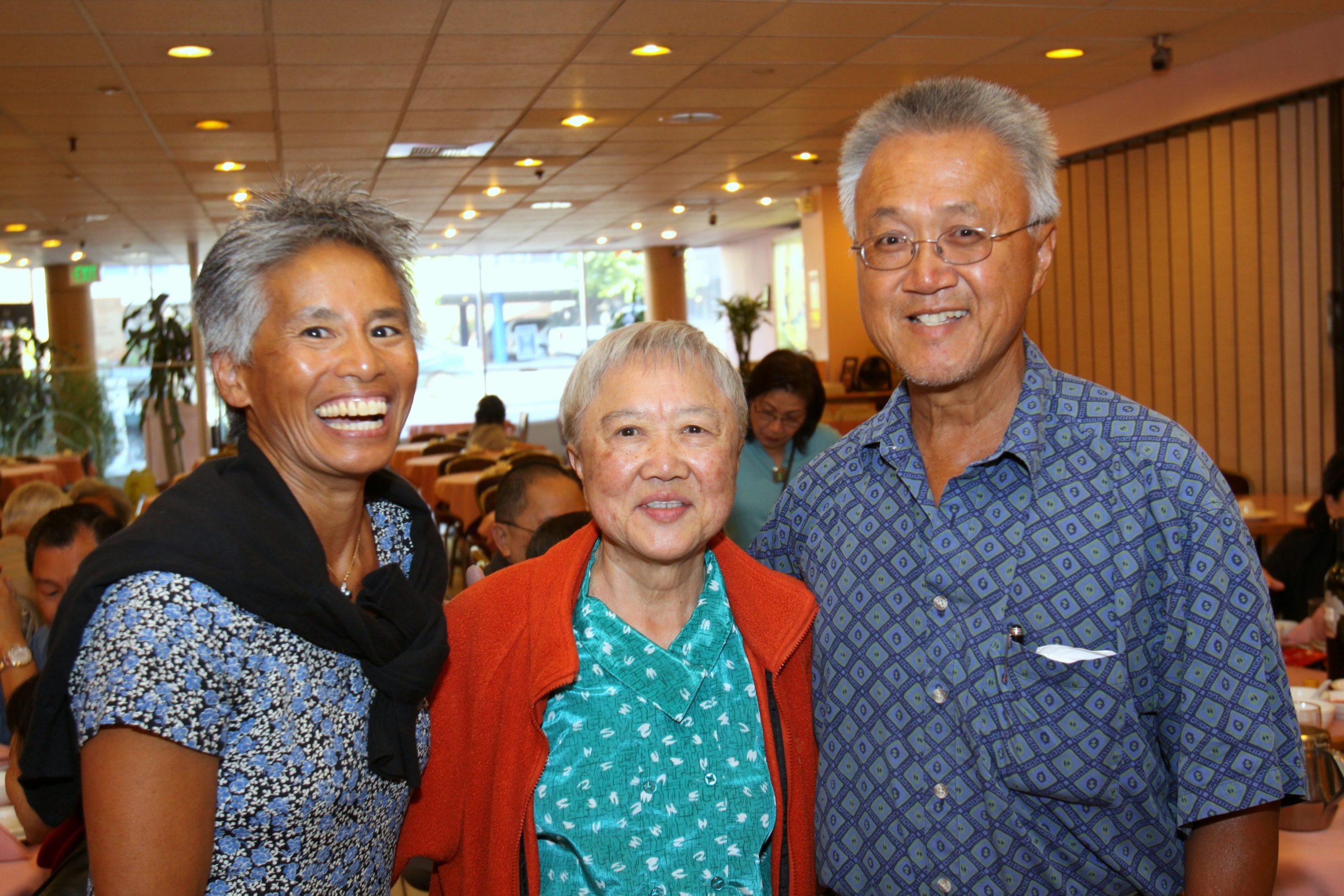When Laura (Jung) Lai boarded a ship to the United States from Hong Kong in 1949, she could hardly have imagined the ripple effect she would have on so many lives in San Francisco’s Chinatown more than half a century later.
Each year, four Chinatown nonprofits receive grants from a San Francisco Foundation estate gift fund established by the late Lai.
In 1949, Lai and her older brother arrived in San Francisco and were immediately detained by Immigration and Naturalization Service authorities. After one week, the teenagers were eventually released and joined their father in an apartment in Chinatown. With no bilingual education available, 16-year-old Lai was forced to join a third-grade classroom.
Lost in a new land, she found refuge in a Chinatown community organization called Mun Ching. The group provided tutoring services, performances in its clubhouse, and a chance to socialize with other Chinese immigrant youth, including her future husband. “Mun Ching was a place where you could be with people your age, people in the same situation, people who understood you,” says Albert Jung, Lai’s younger brother.
But life for new immigrants, then as now, was extremely difficult. During the anti-Communist hysteria of the 1950s and 1960s, the FBI began surveilling Chinese Americans based on their ethnicity and national origin. Under a government program that aimed to deport immigrants from China, Lai, her family, and more than 10,000 other immigrants from China were stripped of their citizenship.
Lai would not be deterred. After a decade living as an immigrant without documentation, she eventually obtained her green card and then her citizenship. She went on to a nearly-40-year-career at PG&E, starting as a keypunch operator and working her way up to supervisor. Her husband, Him Mark Lai, became a preeminent scholar of Chinese American history, publishing a number of notable books on the subject.
The couple was fiercely committed to the kinds of community organizations in Chinatown that they had turned to in their time of need. Drawing on their academic understanding of Chinese American life as well as their own experience facing institutional discrimination, they supported a wide variety of organizations in Chinatown as volunteers, board members, and donors.
“Whenever we needed something, Laura was there,” says Sue Lee, who served as the executive director of the Chinese Historical Society of America between 2004 to 2017. “She was an unsung hero enabling organizations to do our work.”
When Lai began to think about leaving a lasting legacy to the organizations that mattered most to her, she spoke about her charitable estate planning to her friend, the late Dr. Rolland Lowe, a former San Francisco Foundation trustee. Working with a professional advisor, she then set up an estate gift fund at the San Francisco Foundation that would support four Chinatown nonprofits with which she and her husband had been heavily involved: Chinese Historical Society of America, Chinese for Affirmative Action, Chinese Cultural Center, and Self Help for the Elderly.
As a result, residents of Chinatown in need of services as well as a place to feel that they belong can thank Laura and Him Mark Lai for their commitment to a community that will last for many years to come.
“Laura wanted these organizations to continue with as much money as she could give them,” says her brother, Albert. “She was always concerned about others. Never herself, even up to the very end. She had a tremendous heart.”
For more information about creating a charitable legacy in partnership with the San Francisco Foundation, please contact Stephanie Dustman, Planned Giving Officer, at (415) 733-8534 or sdustman[at]sff.org.
Many thanks to Jean Dere for her 2011 article, “Born Lucky: the Story of Laura Lai,” Chinese America: History and Perspectives — the Journal of the Chinese Historical Society of America.


